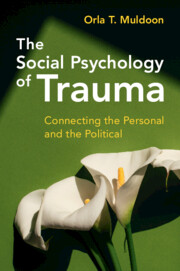This article presents an analysis of long-term care-workers' work motivation that examines the way this is shaped by the social contexts in which they operate. We conducted a thematic analysis of 19 in-depth interviews with care-workers. Three core themes were identified as underpinning their motivation: those of ‘fulfilment’, ‘belonging’ and ‘valuing’, and together these contributed to a central theme of ‘pride’. We also found an overarching theme of ‘shared experience’ to be integral to the way in which care-workers made sense of their motivation and work experience. We draw on the social identity approach to provide a conceptual framework through which to understand how this shared experience shapes care-workers' motivation and the quality of care they deliver. In particular, we note the importance that care-workers' attach to their relationships with clients/patients and highlight the way in which this relational identification shapes their collective identification with their occupation and organisation and, through this, their motivation.


